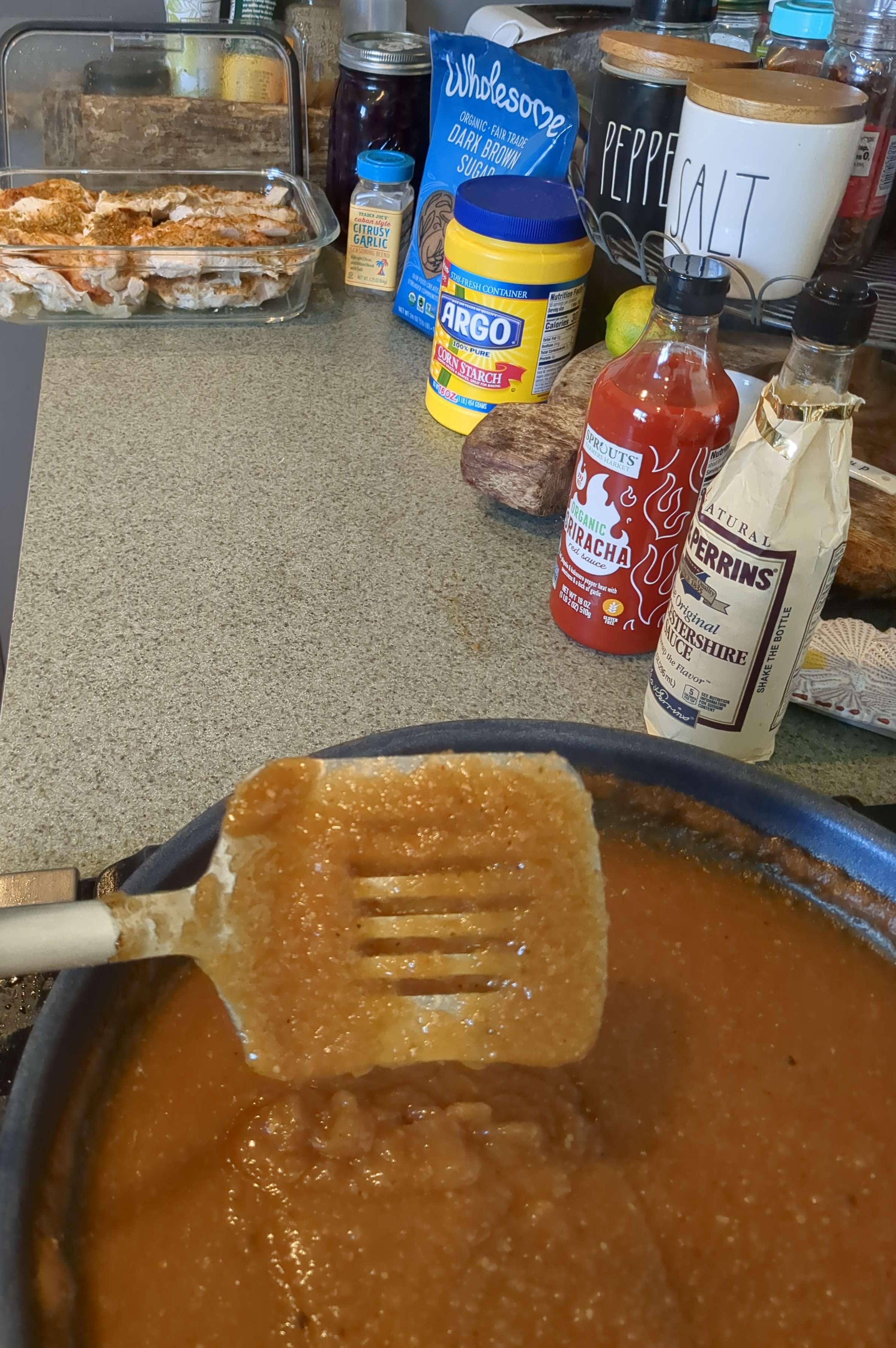No recipe used, just my intuition. This is my 2nd iteration. I cook 8-12 days worth of food at one time. Today I made my typical bake-everything at once deal, with chicken tenders over a bed of onion slices and covered in the lemon garlic spice pictured. I had the idea of turning the onions into a purée in a food processor and turn this into a sauce with the remaining lemon garlic flavored chicken stock. To this I added sriracha, Worcestershire (ancient roman garum like fish sauce), brown sugar (an American is gonna be American), and I used cornstarch to thicken the sauce considerably.
My biggest complaint is presentation. It is not a pretty sauce. I may try mixing it with some mayo at some point to use more like a condiment.
The last iteration was not thickened with cornstarch and it never separated out or lost texture. I’m open to ideas and suggestions for improving the taste or presentation value.
Overall, this sauce is kinda like a teriyaki sauce or something. I’m not sure what to compare it to really.
The following image was from 15 days ago and shows the chicken over onions more like how I cook it in a dish although still not the actual dish I cooked it in. Also, this image shows my first lactic fermentation attempt just after I started. You can make out the jar in the background of this main post image. It is coming along fine, a bit slow, but still bubbling along and getting burped daily.




I used a basic cheap “ninja” processor that is easy to pull out and clean.
I’ll have to look up what an immersion blender is, never heard of it before.
Edit, basically the same thing just the food goes into the processor container instead of the device into the cooking bowl/pan.
Keep in mind, those Ninja things have whacky blades, but they differ. One is a “processor” blade, and another is a “blender” blade. I’d venture a guess this is just processed.
Anyway, to your point: the secret to sauces is sifting and filtering. It’s kind of a quick 3 step process:
If you want a smoother sauce like you’d find in a bottled product, you have a few different ways to go to finish:
All pretty cheap to experiment with.
What’s the real difference between a cheese cloth and an old worn out tee shirt? I keep a bunch for mostly lint free free rags when etching circuit boards and soldering. I might try that.
Cheesecloth has different weave tightness grades, is not dyed, and I guess I would call it food safe. Couldn’t speak to what kind of material any given tshirts could be made of and say the same I guess.
Checking for my own knowledge: pulp it, then strain it, then thicken it. Is that the correct sequence?
It depends on what you mean to make. Is it a sauce of some sort?
Sure. Something like OP was going for.
Well most of the time, texture is going to be the last step, if that’s what you’re asking. As far as what you use, that’s up to you.